For centuries, spiritual texts of all religions and cultures have sought to make sense of our lives and to connect ordinary events to a greater meaning and purpose. That’s especially true when life gets challenging. Losing a loved one, battling an illness, entering a state of depression, committing a sin — all of these actions can be answered by a spiritual quote or piece of wisdom taken from the words of Lord Krishna, Buddha, Rumi or Jesus Christ.
Whether or not you practice a specific religion, you can find mental health awareness quotes from ancient texts. They provide comfort, guidance and above all a reminder to focus on yourself and how to continue on this journey called life.
From “The Dhammapada”
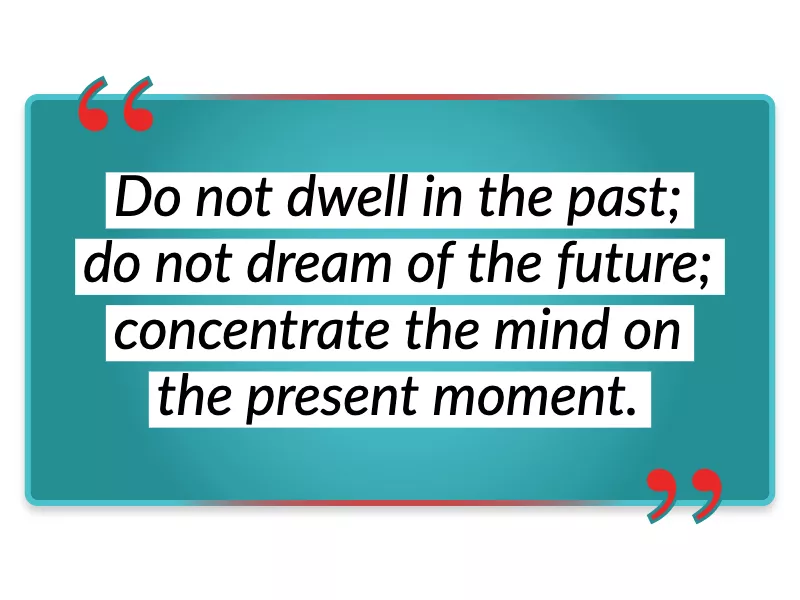
This philosophy taken from Buddhist scripture was the origin of our current “mindfulness” focus. Buddhist philosophy teaches us to let go of our material belongings, our grip on the past and constant references to how our lives used to be.
Similarly, we need to stop anticipating and assuming what our future will be because the nature of life is unpredictable. Bring yourself fully into the present by focusing on the five senses in this moment, here and now.
From “Bhagavad Gita”
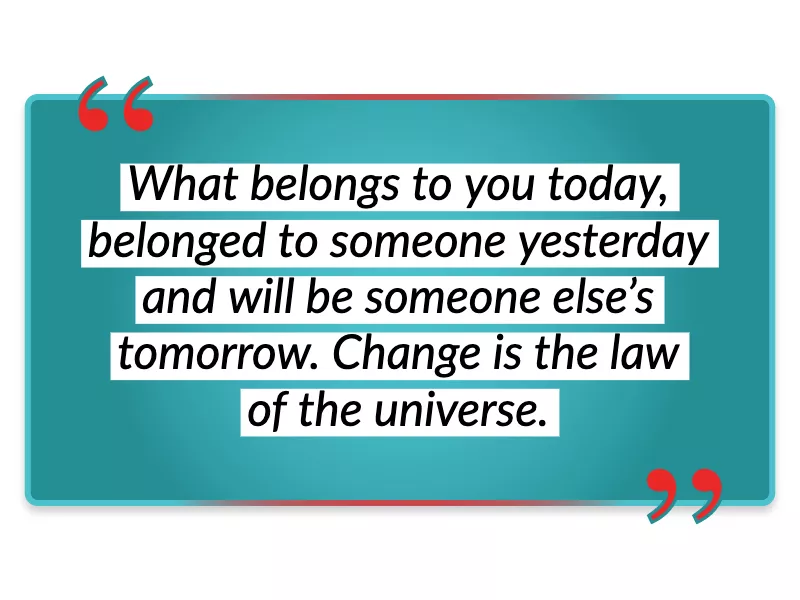
Nothing is certain in this world, and there are no absolute truths. This Hindu text reminds us that we don’t genuinely own anything, and to depend on material goods, wealth or the title on our business card is a recipe for misery.
When we have lost someone or something really important to us, we must grieve and move on. When we experience something fantastic and exciting, we must celebrate it but then move on. To dwell on these events or these gains and losses as if they are going to change us permanently is to forget that the nature of living is that everything changes.
From The Bible’s “New Testament” (Romans 8:18)
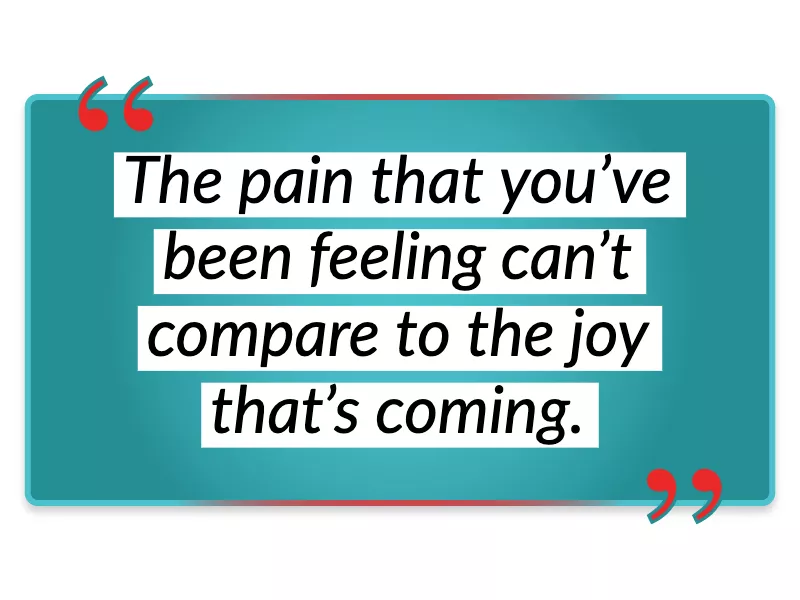
So often, we become convinced that the difficult situation we’ve experienced or the suffering we’ve been immersed in is all there is.
This quote from Romans reminds us that we can’t possibly know the future, but we have every reason to suspect there is joy in our futures because this is the nature of life: beautiful and unpredictable.
From Rumi’s “Mathnawi, I”
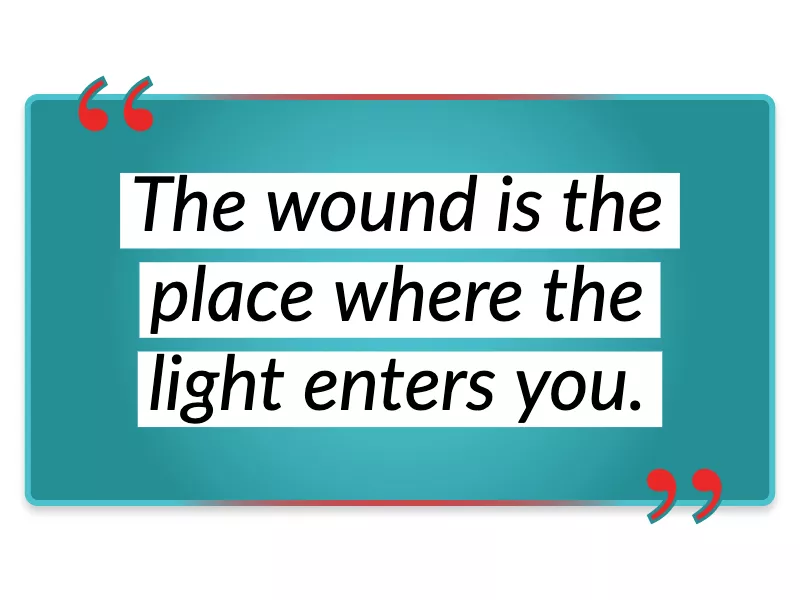
Regardless of how much privilege and how many opportunities there are in your life, none of us are immune to loss, grief and hurt. Mystic and Poet Rumi reminds us that these experiences don’t need to make us bitter and sad.
Rather, we can see these memories and experiences as the path towards being more compassionate, wiser, able to counsel others who are going through the same things and able to prove to ourselves and others that we are not victims to our heartbreak. These wounds can reveal the best in us.
From “Bhagavad Gita”
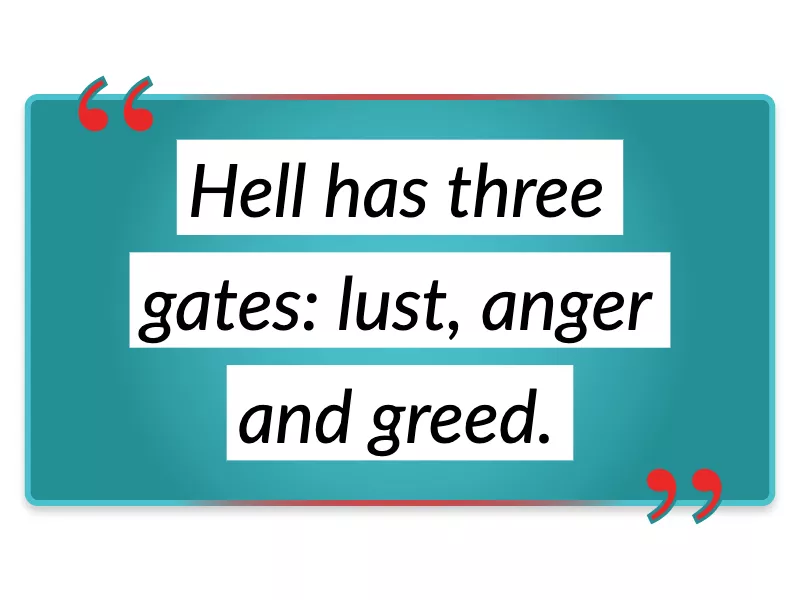
To covet what we don’t have, to be bitter towards those who have what we think we want and to hunger for more and better only leads to a cycle of despair and self destruction. However lonely or poor we may feel, there is always someone in a worse position and someone in a better one.
To constantly compare our own situation to others is to lose sight of the fact that we have what we really need when we are healthy, loved, free and living.
From “The Pali Canon”
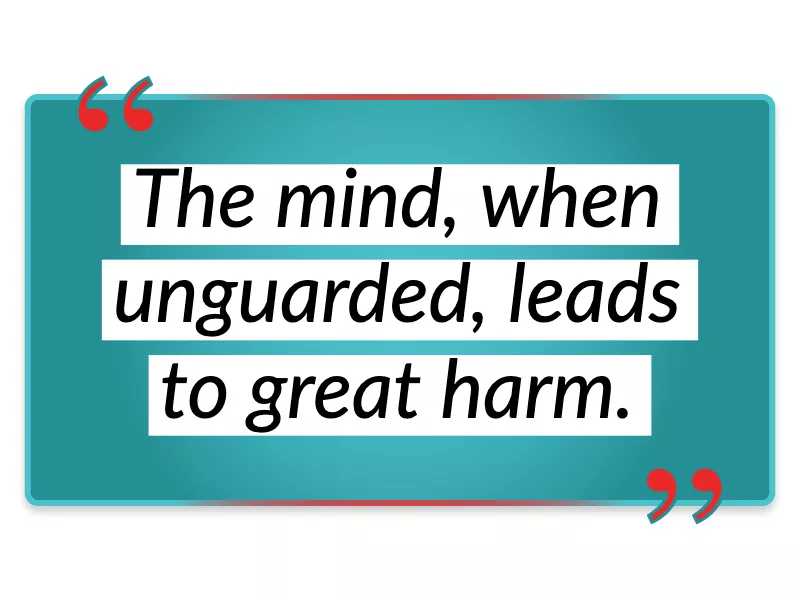
Often, it is not the judgments and words of others that really strike at our heart and make us feel unworthy and unloved. This quote from the early Buddhist canon explains that it is the thoughts we have about ourselves when we are feeling vulnerable, exhausted and sensitive. Just as we have a choice, when faced with a feast of what to eat, so we can choose from the ocean of thoughts that are racing through our minds at every moment.
To allow the first, critical one to be the thought we cling onto is to sabotage our own mental well-being, and it prevents peace. Rather, be on guard and start to become used to rejecting the thoughts that make us feel bad about ourselves and to instead, however difficult, choose to think that things happen for the best, that this is part of our stories as individuals and that these thoughts aren’t true — simply the result of how we feel right now.
From Rumi’s Poem, “A Great Wagon”
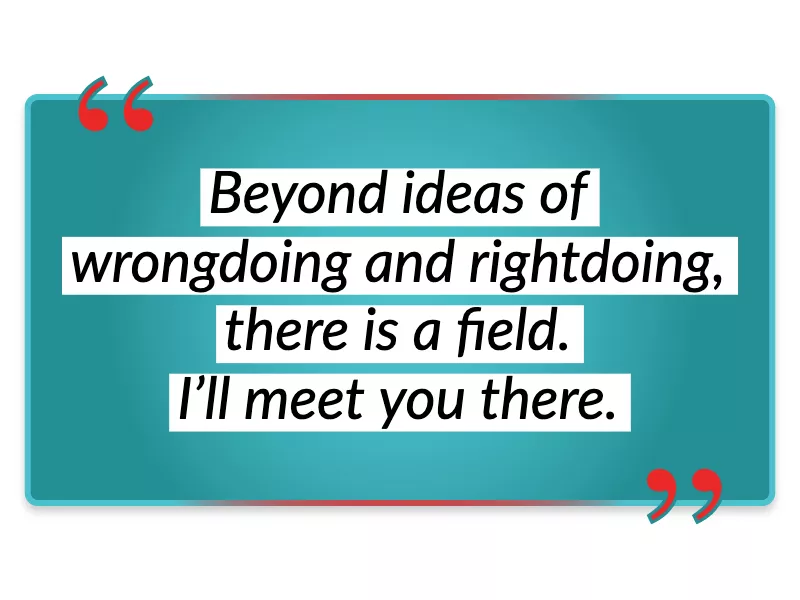
When we have very strict and rigid ideas of what is right and wrong, we can alienate ourselves and others. One of the great beauties of life is that we have the choice to be curious, to be open, to have discussion and to learn throughout our entire lives.
Regardless of whether you change your mind, be open to discussion and be willing to challenge what you know and believe. This is the essence of learning from and loving others.
From “Bhagavad Gita”
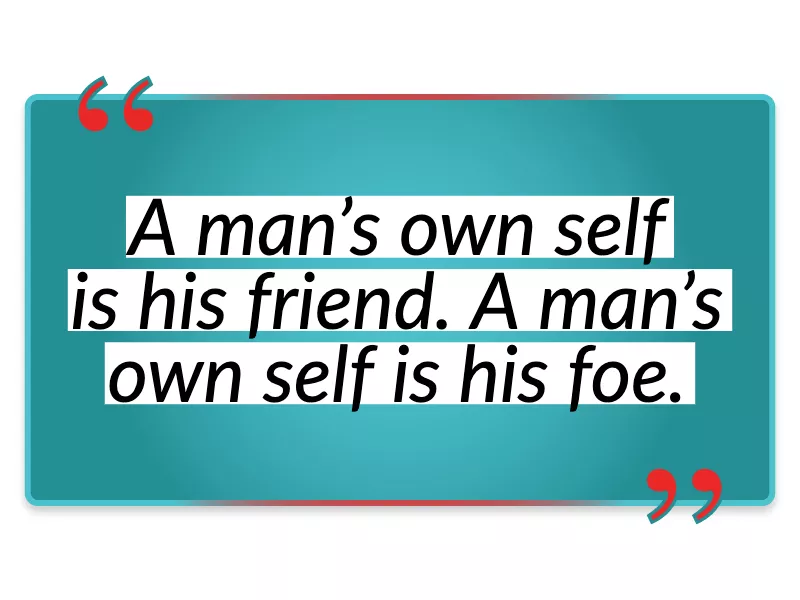
The beauty of this quote is that it provides us with a choice. We can opt to criticize ourselves: our hair, our face, our income, our home and our weight. We can also choose to focus on what is wonderful in us: our capacity to look after and love others, to choose where we live and how we vote, who we partner and befriend.
We can also choose to wake up and feel grateful and joyous that, of all the possible genetic outcomes of two random strangers in the world, we were born exactly as we are and exactly as we’re meant to be.
A Jewish Proverb
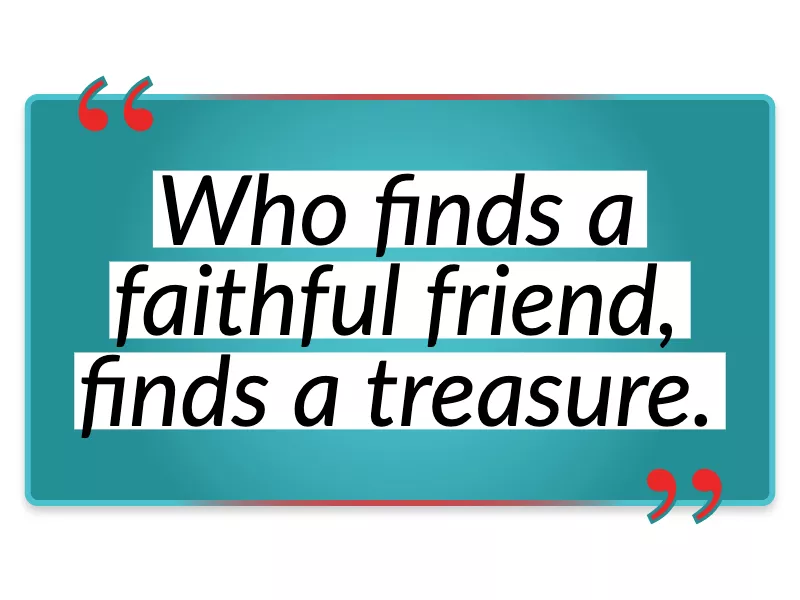
So often in life there is pressure to find the right job, the right partner, buy the right house and fit into a narrow and convenient idea of a life. The truth is that regardless of how different, interesting and fantastic our jobs, love lives, where and how we live, at least one good friend is immensely rewarding in every way.
Knowing there is someone to celebrate your highs and commiserate your lows is a great comfort. If you can be a faithful friend to someone else, you are a treasure also.
From “The Talmud”
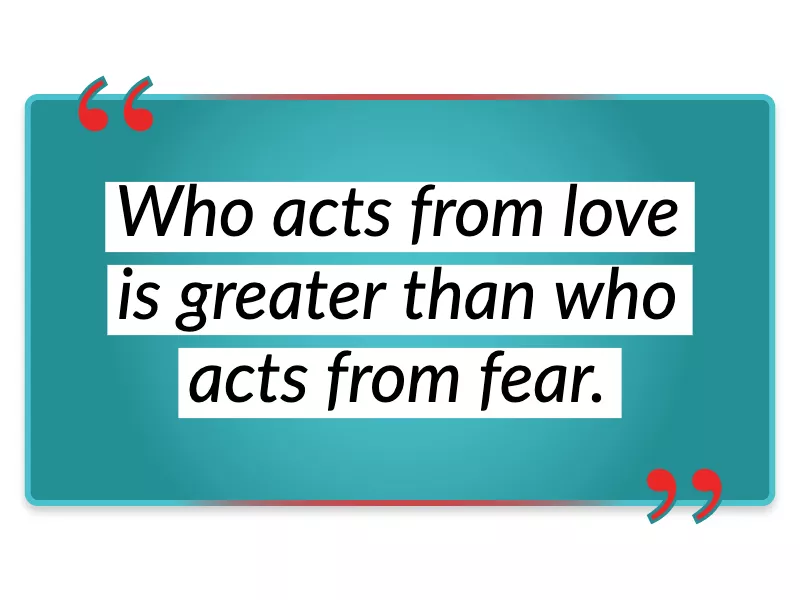
This quote from “The Talmud,” the central text of Rabbinic Judaism, advises us of the great truth that acting out of love is a much better choice than acting from fear. When we allow ourselves to feel desperate and anxious, the fastest choice or the most convenient choice is often the one we make.
If we, instead, consider what the right choices are and what will bring the most sense of pride and satisfaction to our heart and spirit, this is the right choice to make. This may play out in your daily life. Do you make a choice out of jealousy and anger, or can you reflect on the next step and choose the one that reflects the best qualities of who you are?
From “Buddha’s Little Instruction Book” by Jack Kornfield
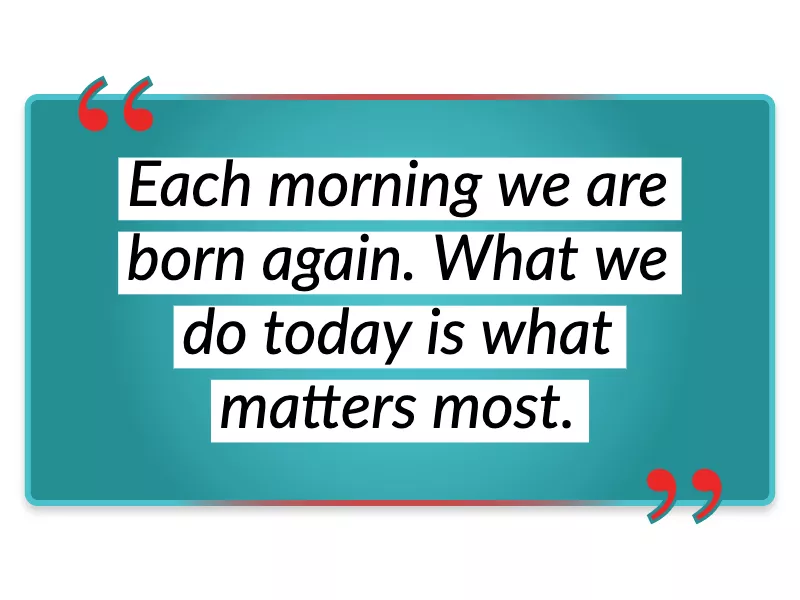
Everyone has a history, everyone has skeletons in their closet, and all of us have made choices we regret. These things do not define us in every moment, and this is the essence of liberation. Buddha tells us that it is the choices we make right now, and every moment, that matter.
Then, when you wake up again and again, you will make choices that you feel good and right about in the moment. This is how we must live — not dwelling on when we have made mistakes or been hurt, or even on the great achievements we’ve made. Rather, we must focus on our choices and our lives right now, in the moment.
From The Bible’s “Old Testament” (Jeremiah 29:11)
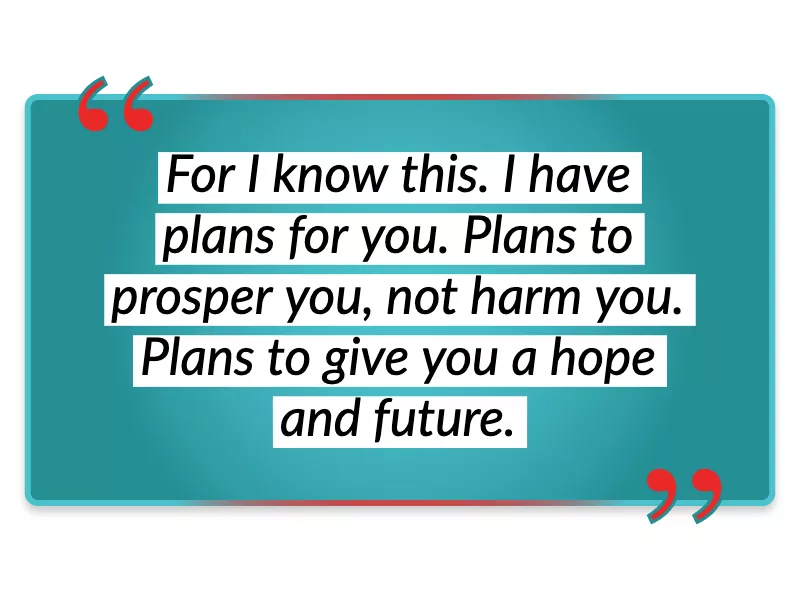
Whether you believe in God, Allah, Buddha, a higher consciousness or simply the goodness of humanity, having trust in something beyond yourself so that you can believe there are plans for you that involve prosperity and regular opportunities to make choices and to evolve is central to feeling hope.
Rather than existing with suspicions of the people and the world around you, try to change your mindset to assume that the world and the people in it want you to have freedom, joy and all the opportunities you need to find and follow what you are passionate about.